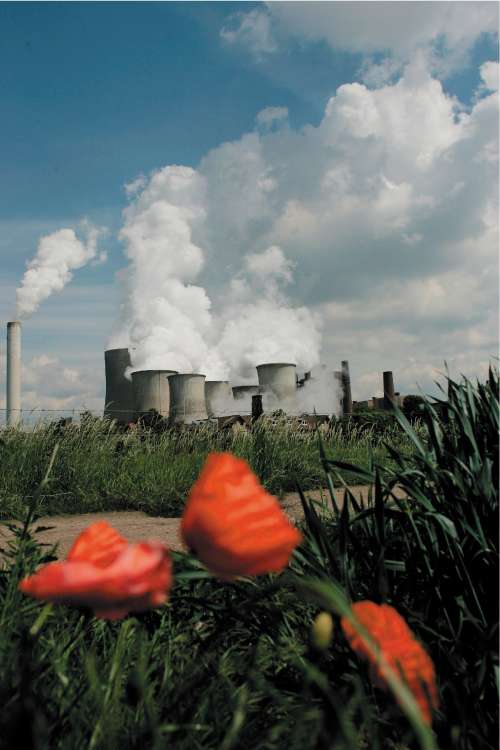EU presses ahead with substantial cuts in emissions

Your support helps us to tell the story
From reproductive rights to climate change to Big Tech, The Independent is on the ground when the story is developing. Whether it's investigating the financials of Elon Musk's pro-Trump PAC or producing our latest documentary, 'The A Word', which shines a light on the American women fighting for reproductive rights, we know how important it is to parse out the facts from the messaging.
At such a critical moment in US history, we need reporters on the ground. Your donation allows us to keep sending journalists to speak to both sides of the story.
The Independent is trusted by Americans across the entire political spectrum. And unlike many other quality news outlets, we choose not to lock Americans out of our reporting and analysis with paywalls. We believe quality journalism should be available to everyone, paid for by those who can afford it.
Your support makes all the difference.EU leaders are likely to push ahead with plans for substantial cuts in "greenhouse" emissions in Europe over the next 12 years at the end of their summit in Brussels today.
Despite efforts by some governments to weaken the targets, and complaints from green pressure groups that the EU is aiming too low, leaders are expected to promise legislation by next March to cut the 1990 level of carbon dioxide emissions by one-fifth by 2020.
EU leaders will also seek to calm fears of a rapid economic slowdown in Europe and will approve much-reduced French plans for a "Club Med" – a closer association between the EU and all of the Mediterranean- shore countries, from Algeria to Israel.
Overall, however, this will be an unusual EU meeting: more of a valley than a summit, a wary, but mostly amicable gathering in the gap between last year's heated deal on constitutional reform and what will probably be an activist French EU presidency from July.
In one sense, this is what EU summit meetings ought to be, a relaxed but serious gathering of leaders to discuss the most pressing issues facing the continent. On the other hand, crisis is the oxygen and adrenalin of the EU. A Brussels summit without a row is likely to be a meeting which makes no substantial progress in any direction.
Gordon Brown will use the summit to push his idea for Europe-wide cuts in VAT rates on environmentally friendly products, from dishwashers to fridges. He suggested that "green" VAT rates could help the EU to meet its greenhouse targets through financial incentives rather than punishment. "I'm suggesting to the EU we reduce VAT on environmentally sensitive products," he said. "I think that could be a powerful lever for change."
Mr Brown's ideas will receive a polite hearing and are likely to be sent for further study by officials.
The 27 EU leaders are expected to make a commitment in the summit declaration this afternoon to pass legislation by next March on European Commission plans for substantial cuts in greenhouse emissions. The problem is that several member states, and industry leaders, fear that these targets will conflict with another principal aim of the summit: to stabilise the European economy.
Even the European Commission admits that the targets will be costly. Reducing 1990 emission levels by 20 per cent by 2020 would cost up to €90bn (£70bn) and could knock 0.5 per cent off European GDP. At a time when the high value of the euro and the credit crunch-fuelled slowdown in the US are dampening European economies, several governments are beginning to wonder whether they can afford such a large "green" bill.
The European Commission President, Jose Manuel Barroso, argues that the long-term cost of refusing climate action will be even more devastating. The "credibility" of the EU as a leader on climate policy is at stake, he said yesterday. EU leaders are expected to give a commitment to take firm action by March. In the meantime, the European Commission is to draw up more detailed proposals on how the targets can be achieved.
Greenpeace has urged the EU to set a target of a 30 per cent cut by 2020. In a statement, the organisation reminded EU leaders that a Brussels report had warned only last week that climate change would bring "competition for dwindling natural resources, climate migrations, conflicts and humanitarian disasters".
The summit is also expected to make a reassuring statement on the prospects for the EU economy, despite downbeat comments by several leaders on arrival yesterday. The summit declaration will also promise work on an early-warning system to avoid future "sub-prime" crises by forcing financial institutions to be more open.
Join our commenting forum
Join thought-provoking conversations, follow other Independent readers and see their replies
Comments